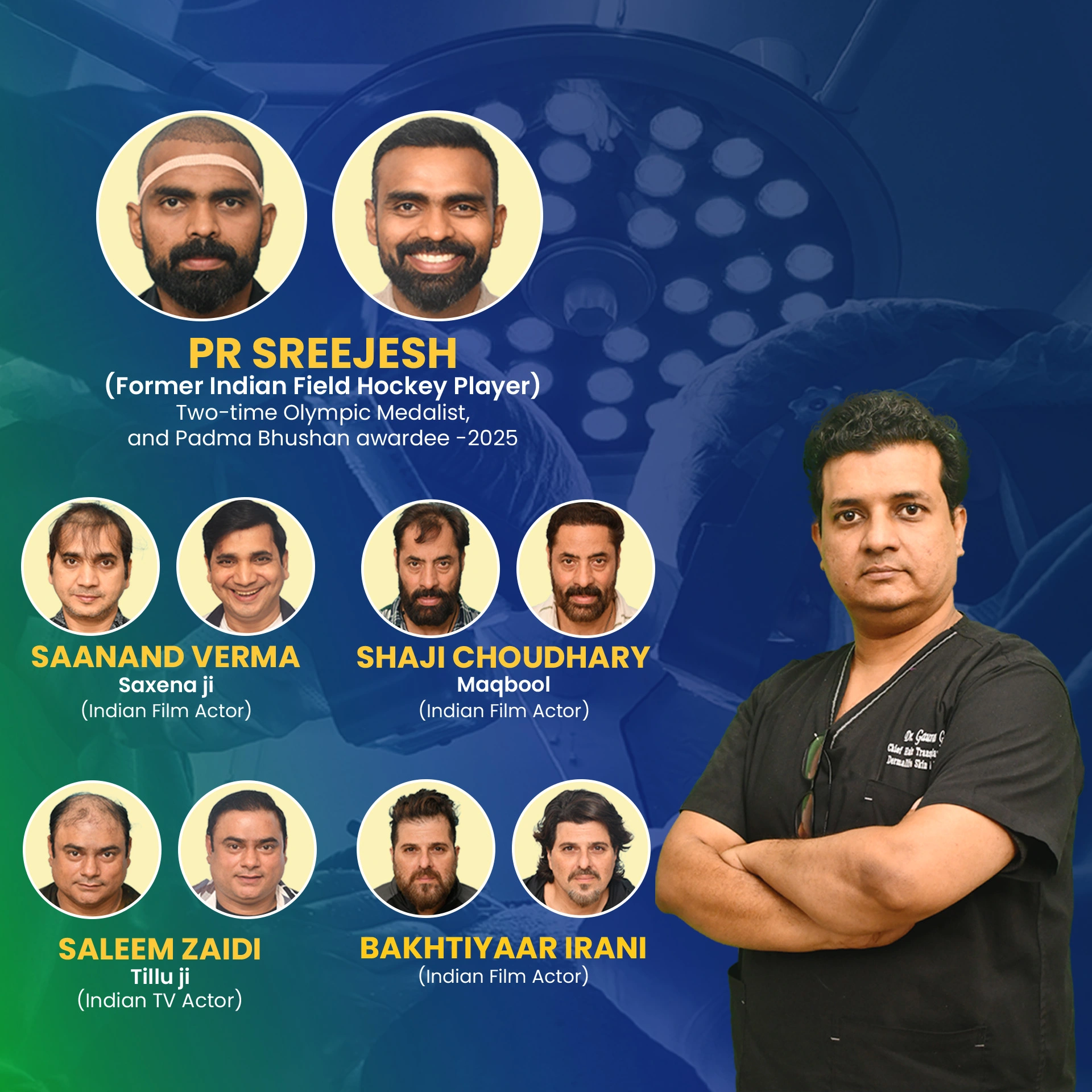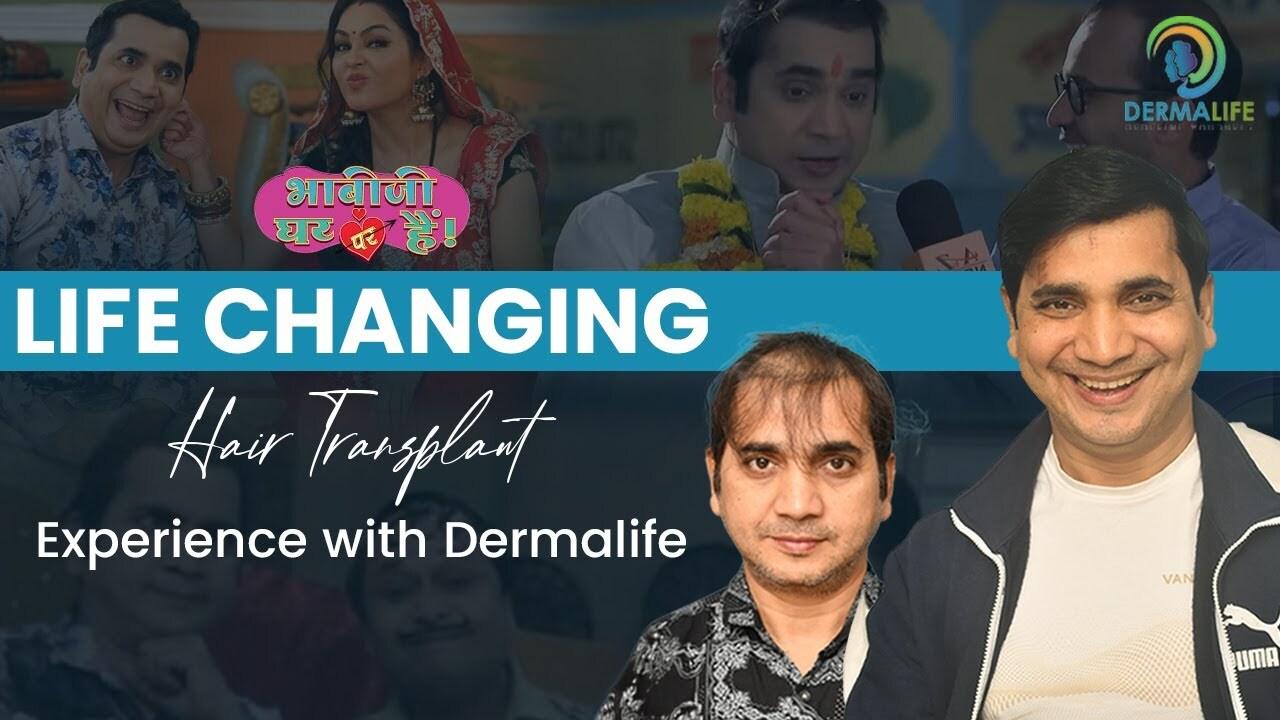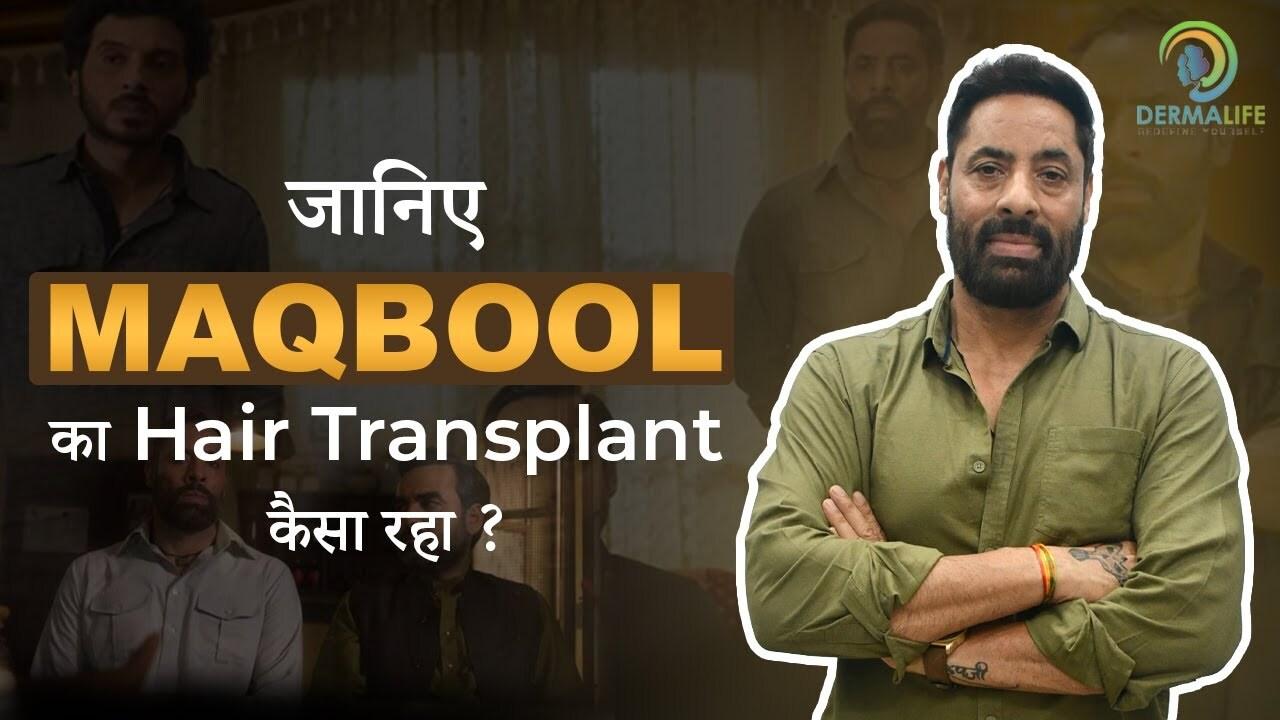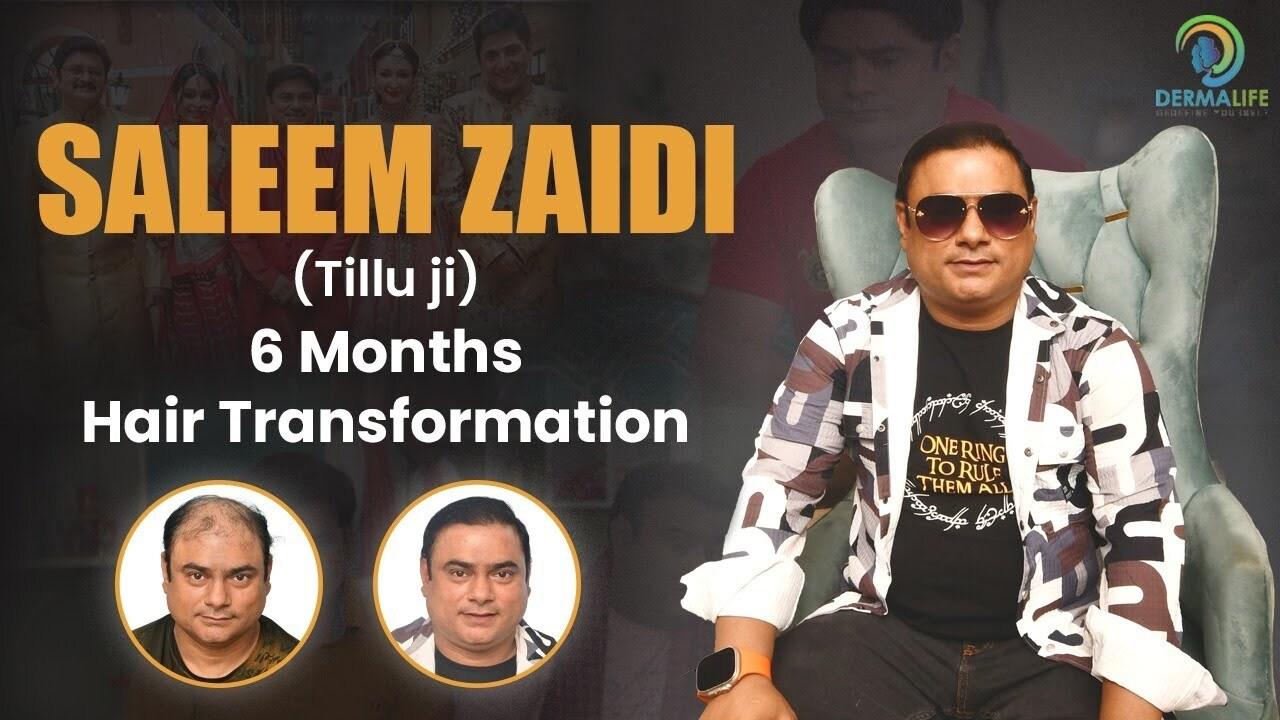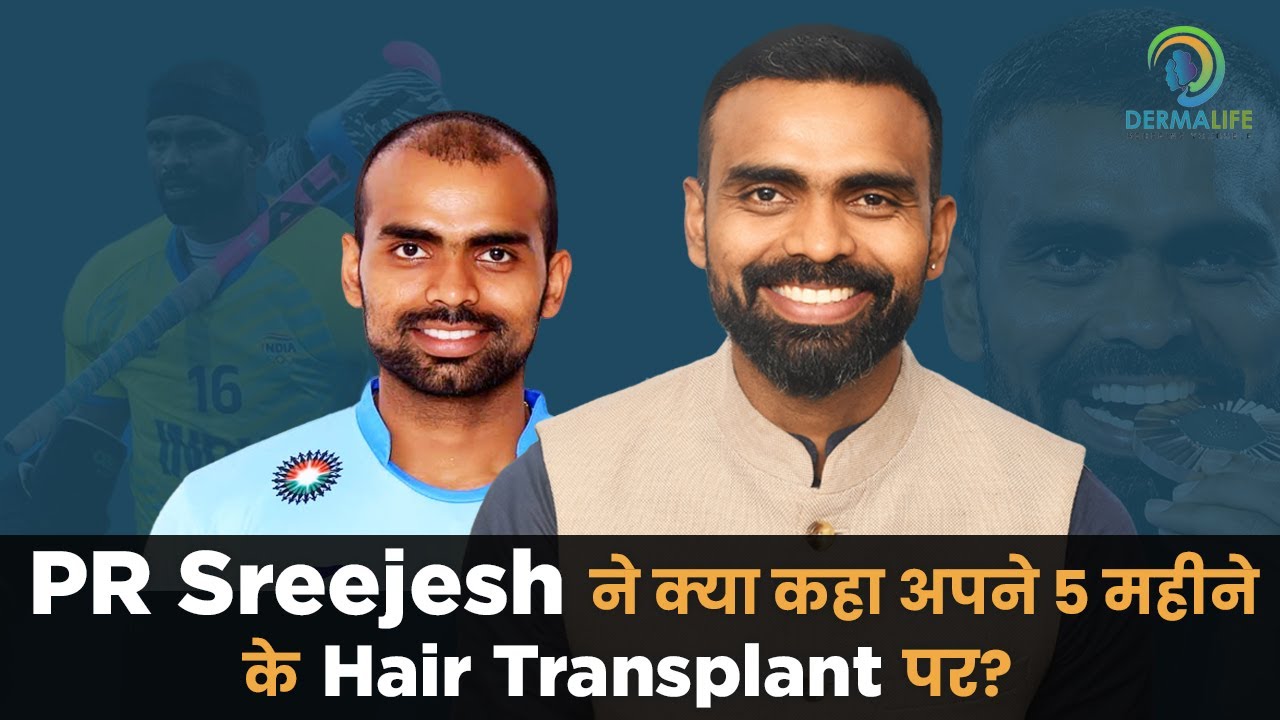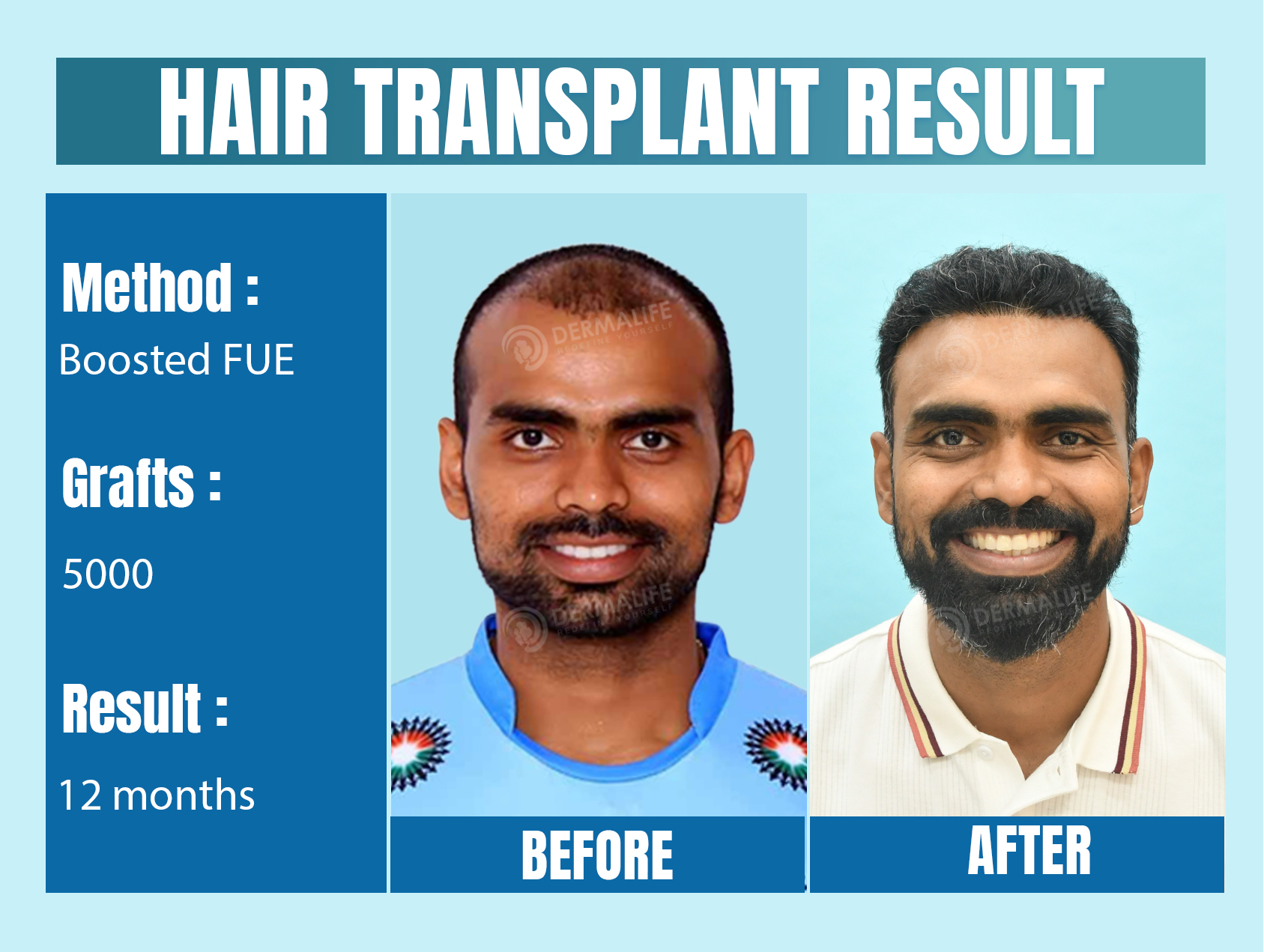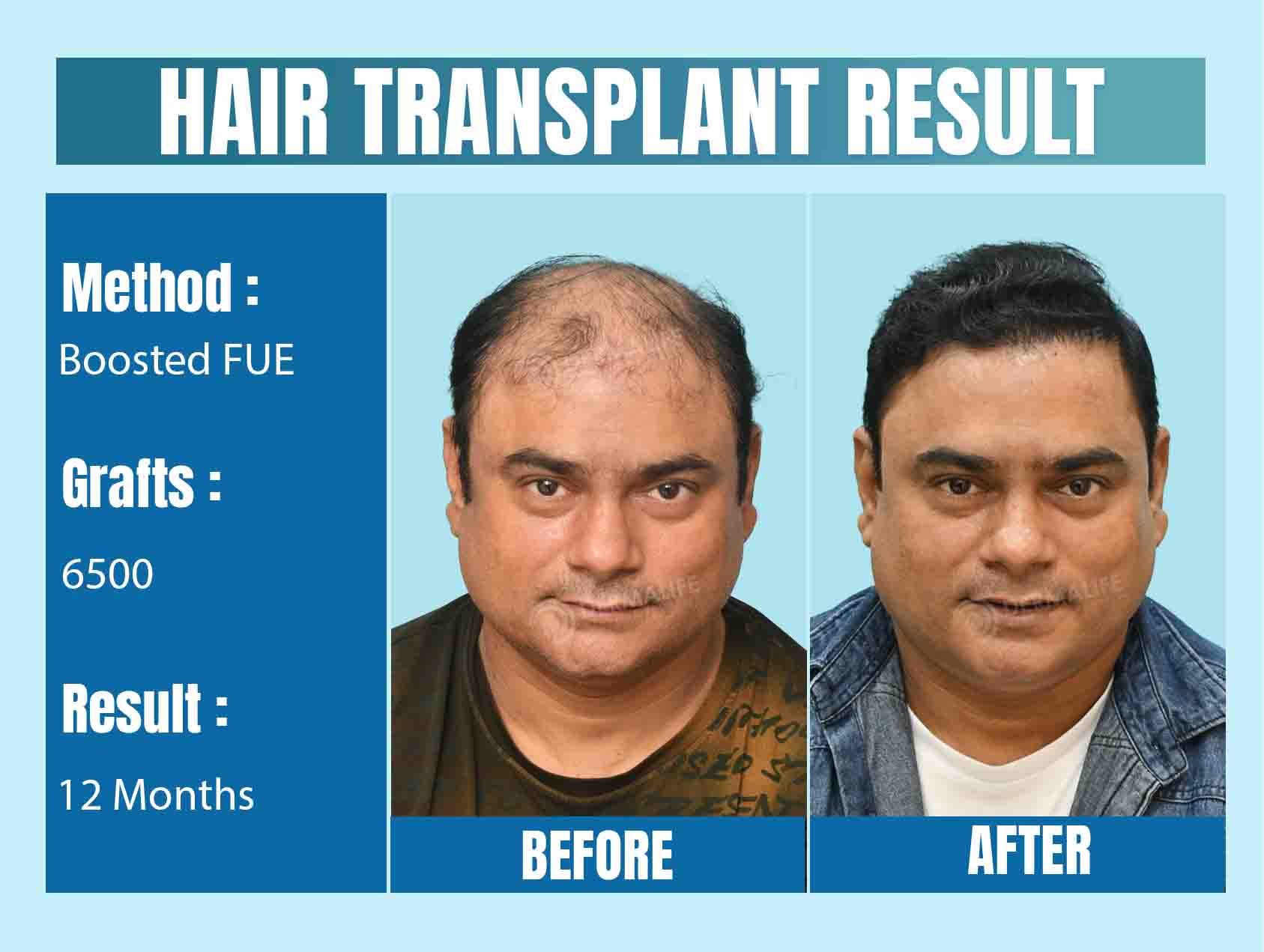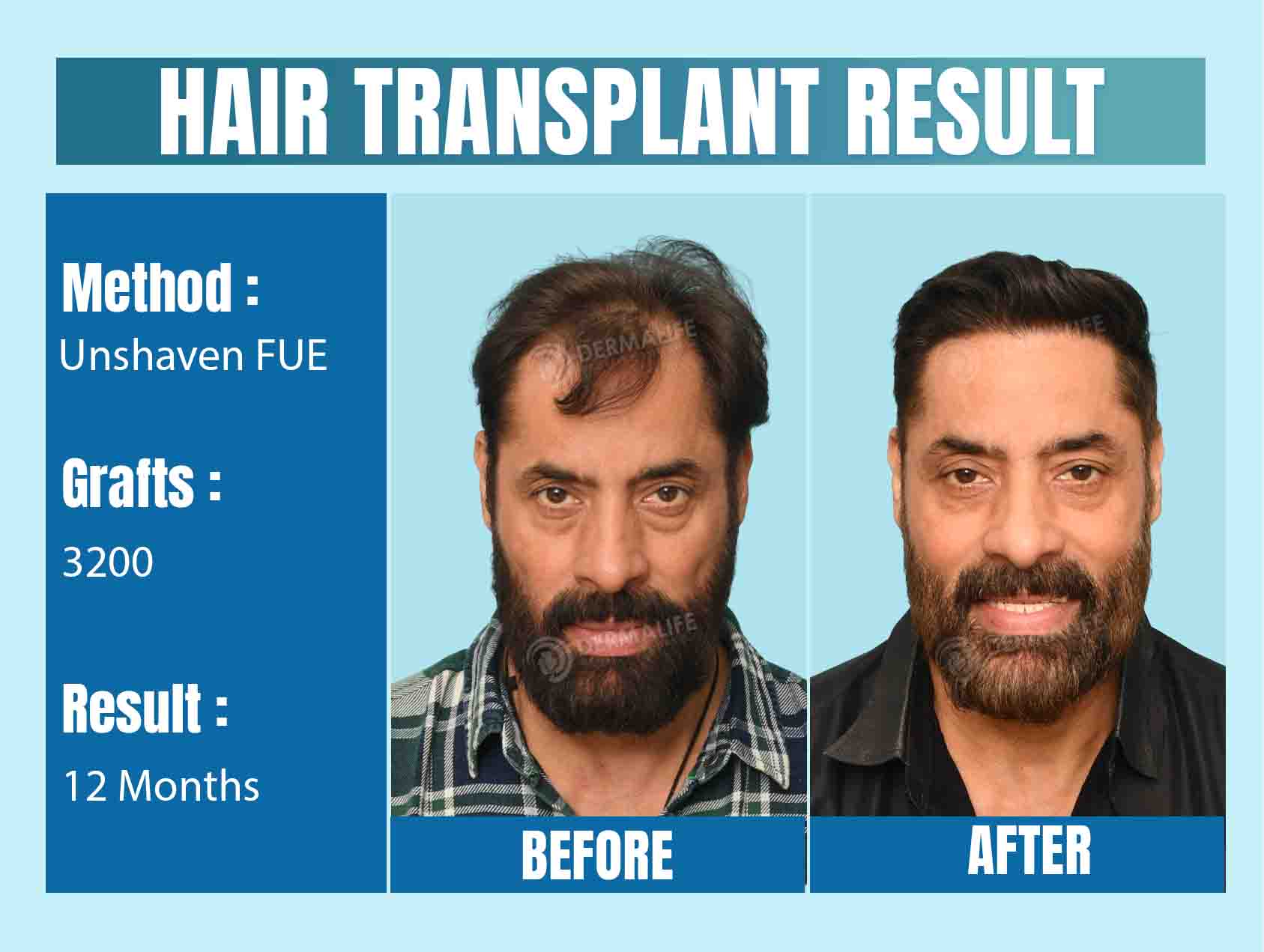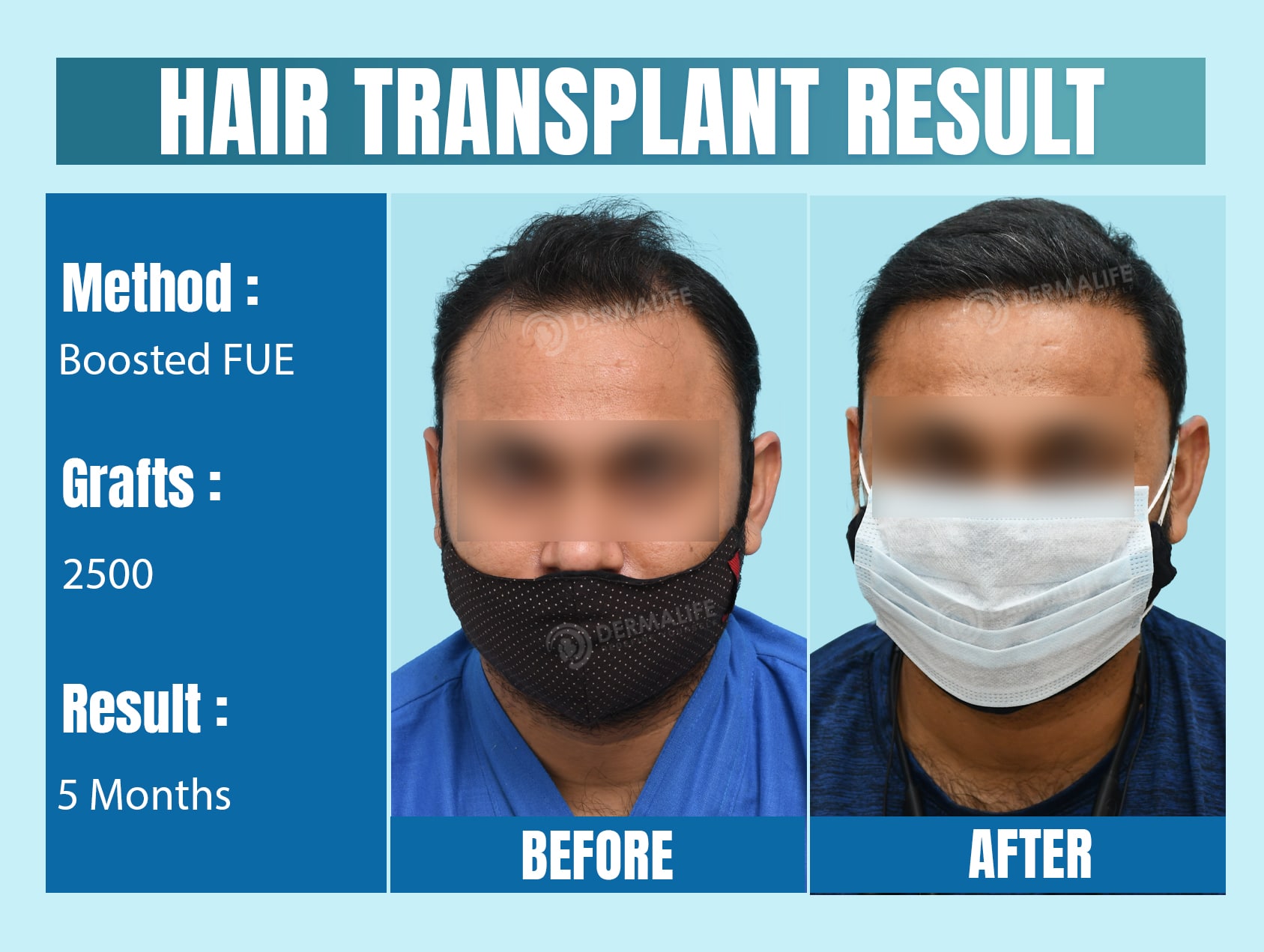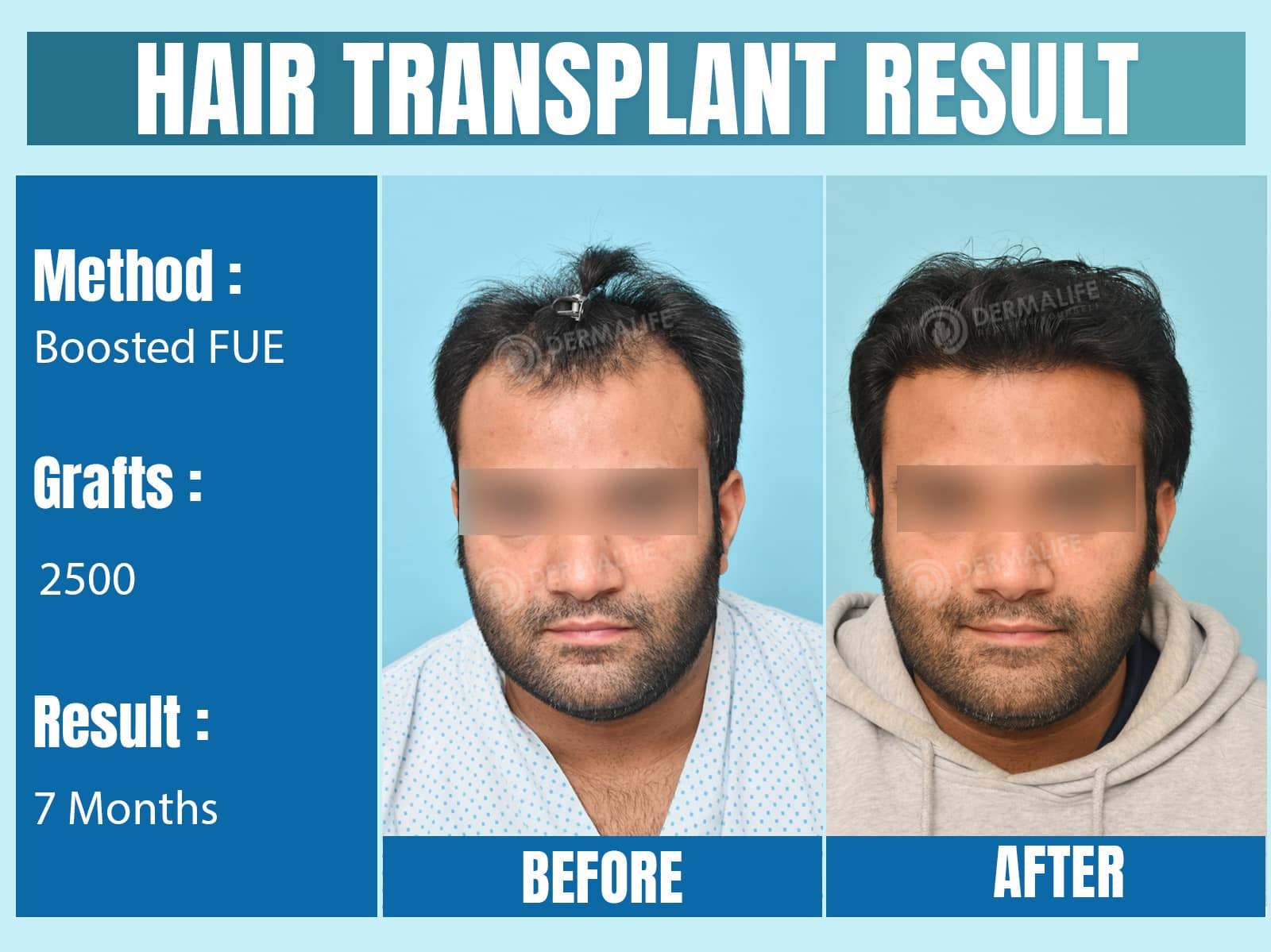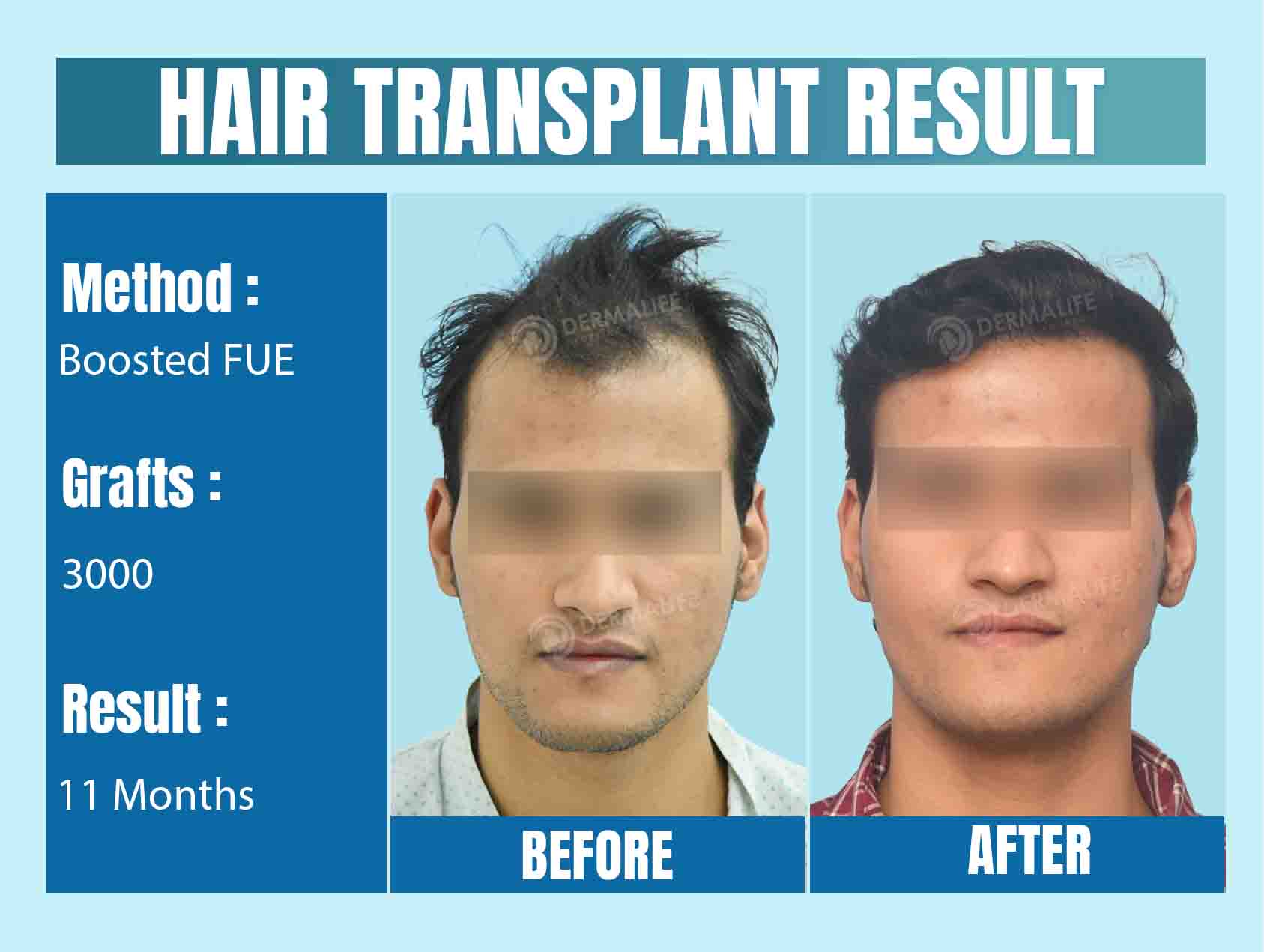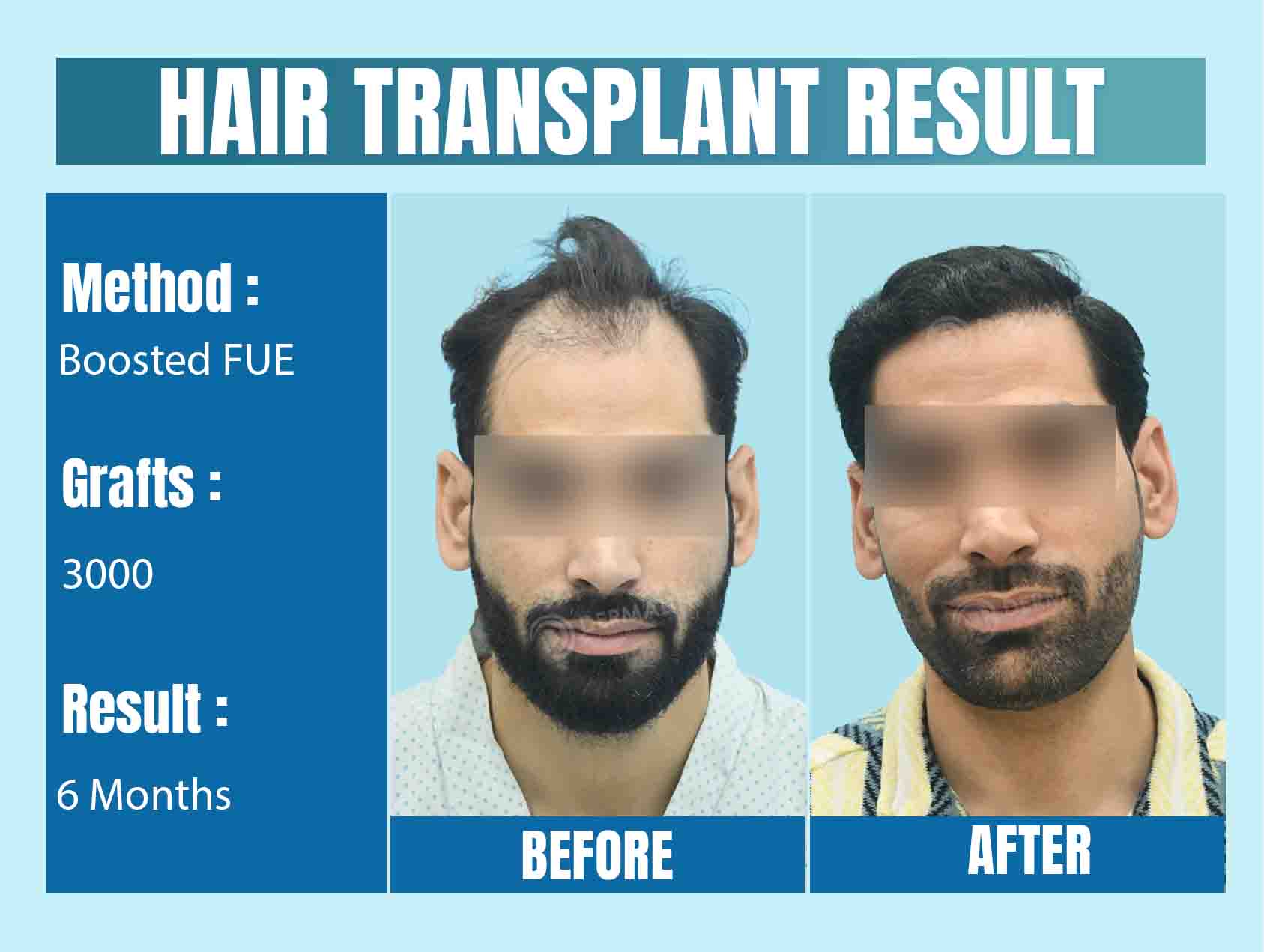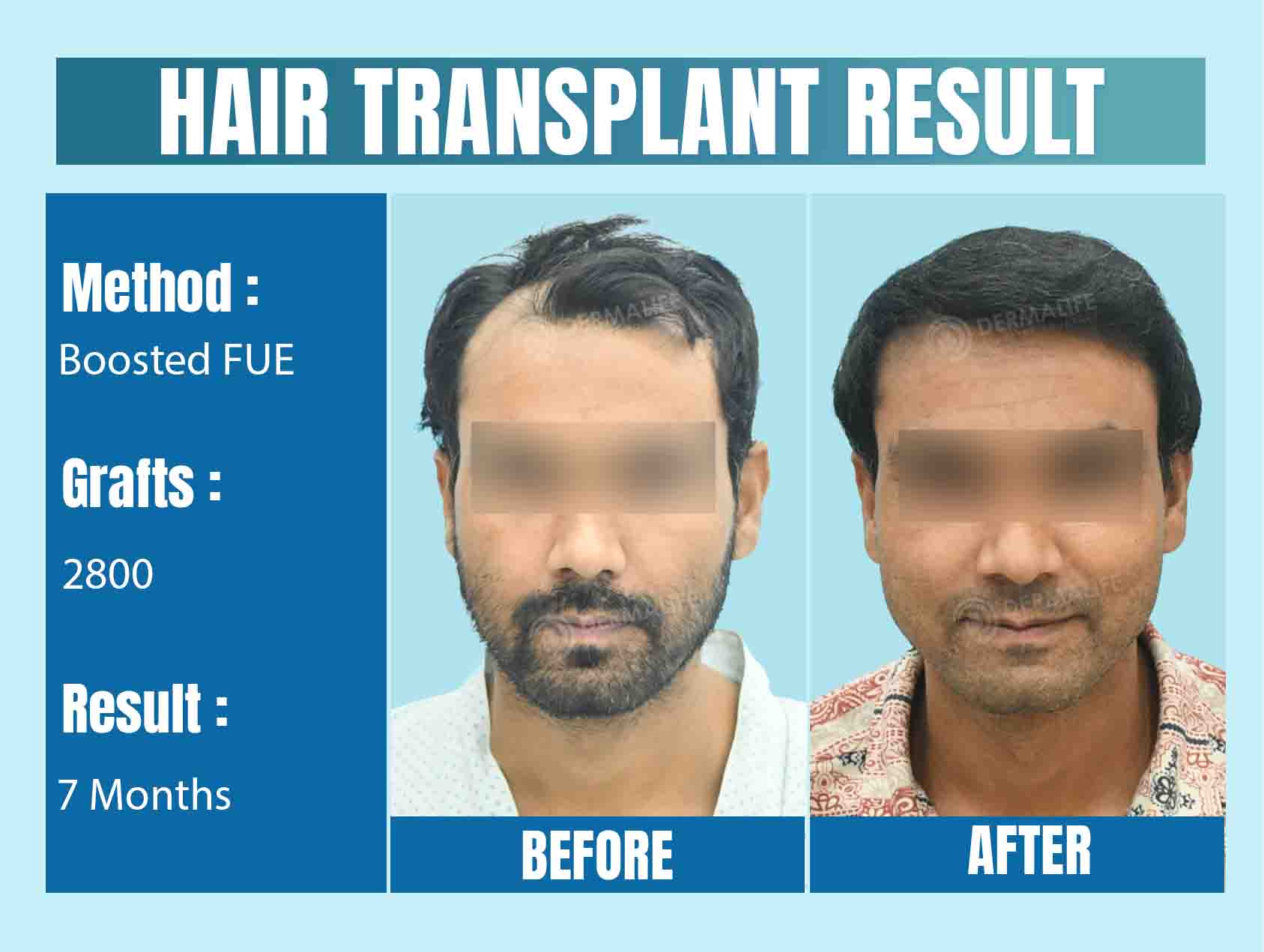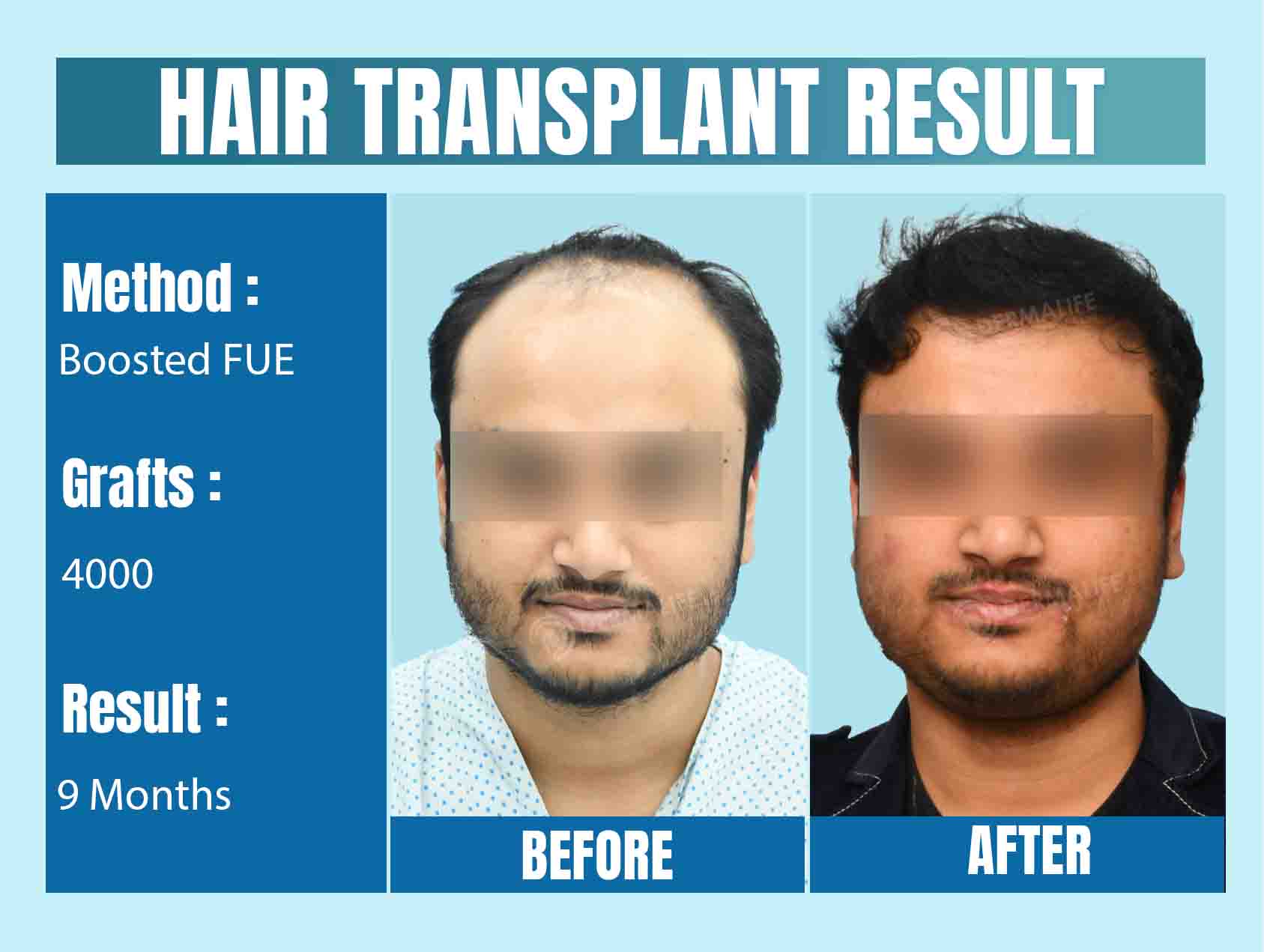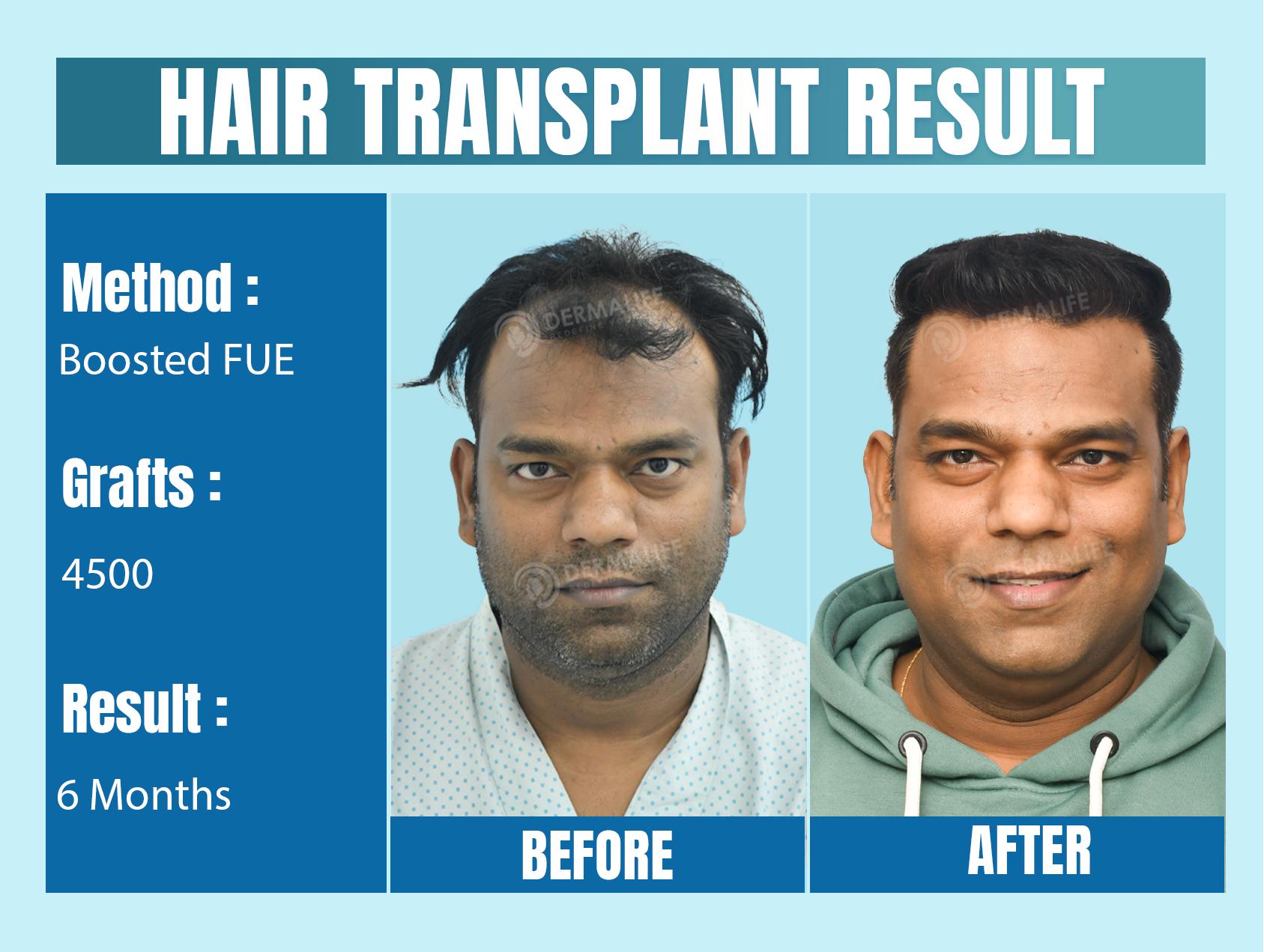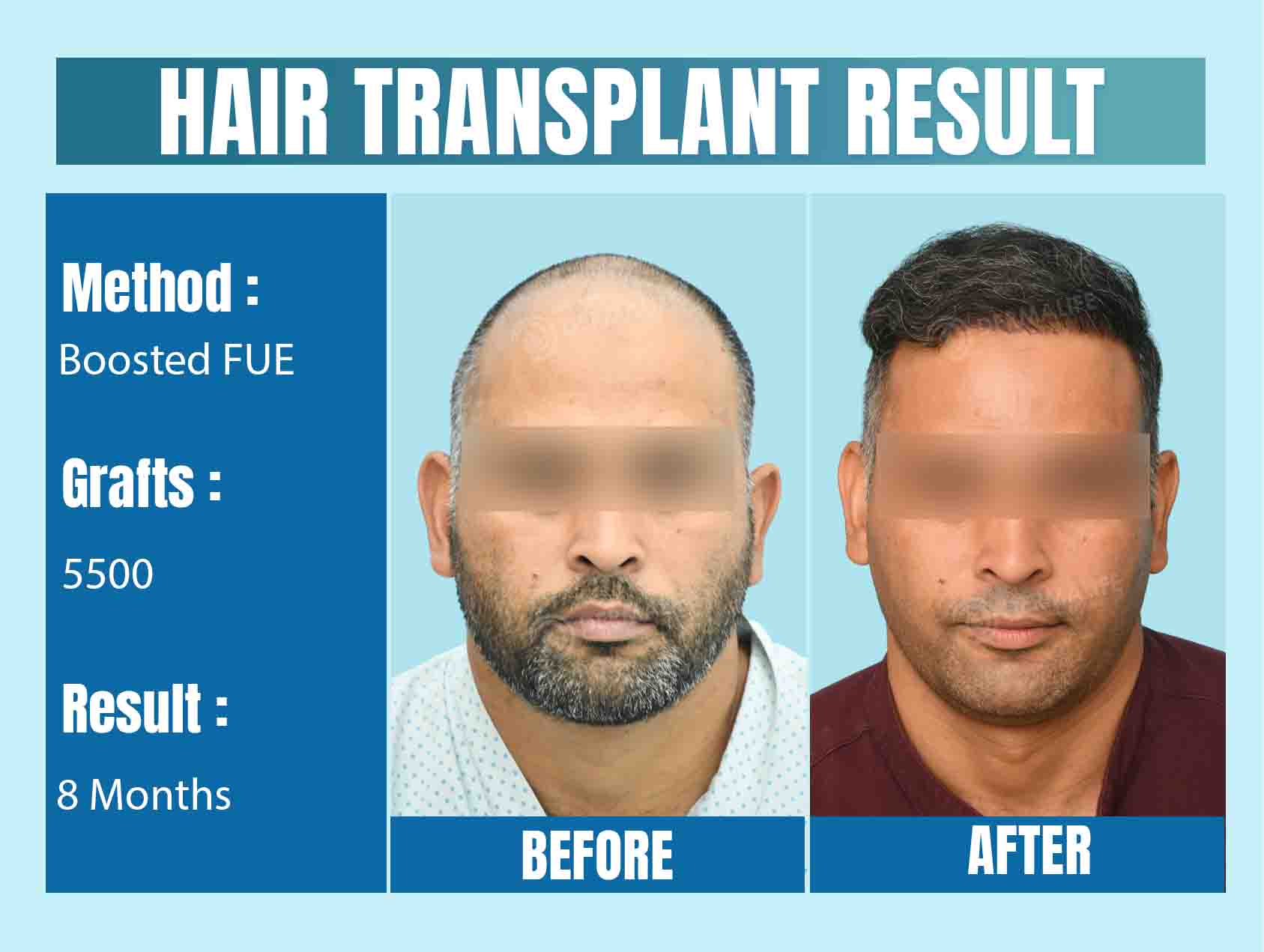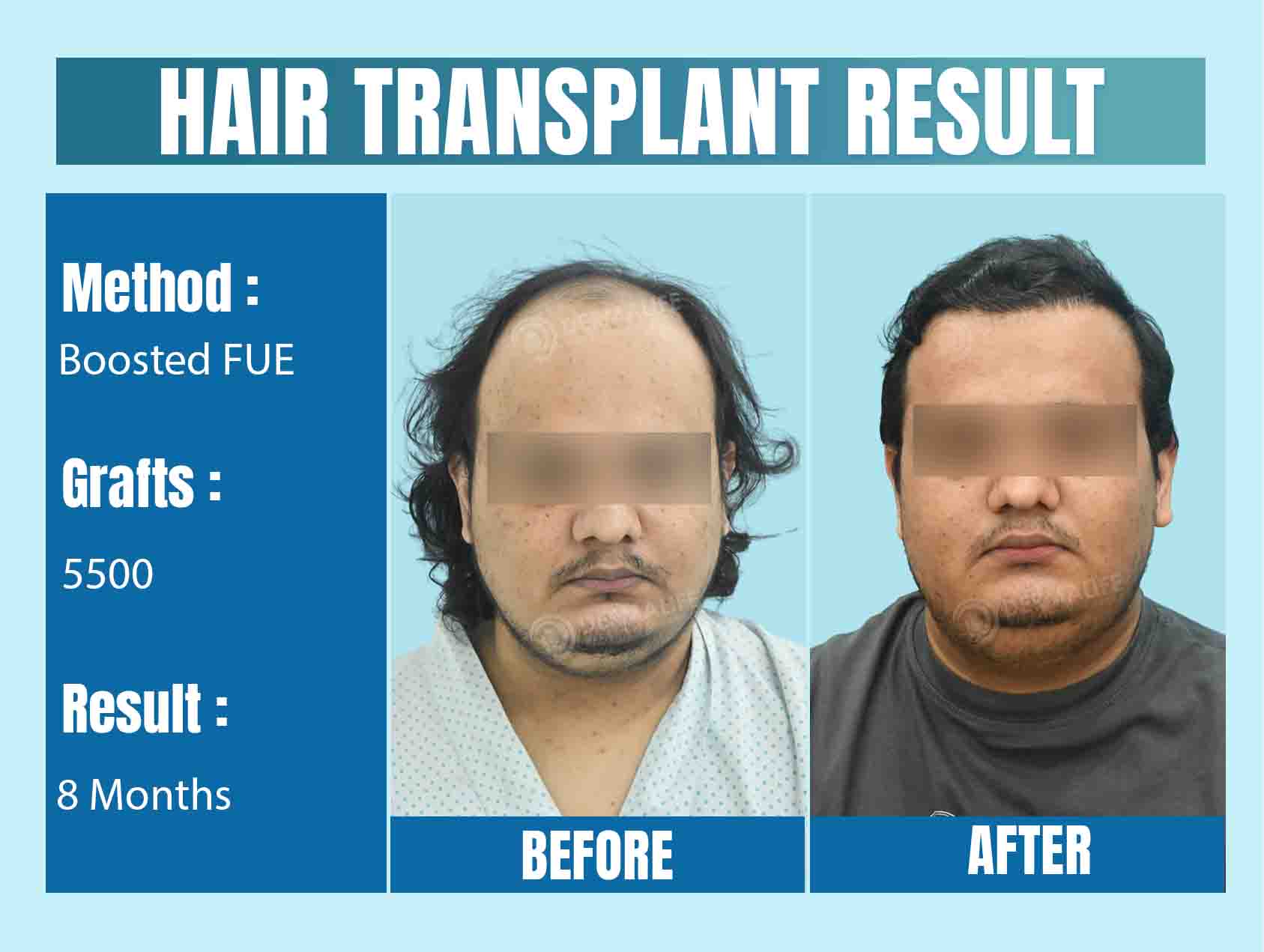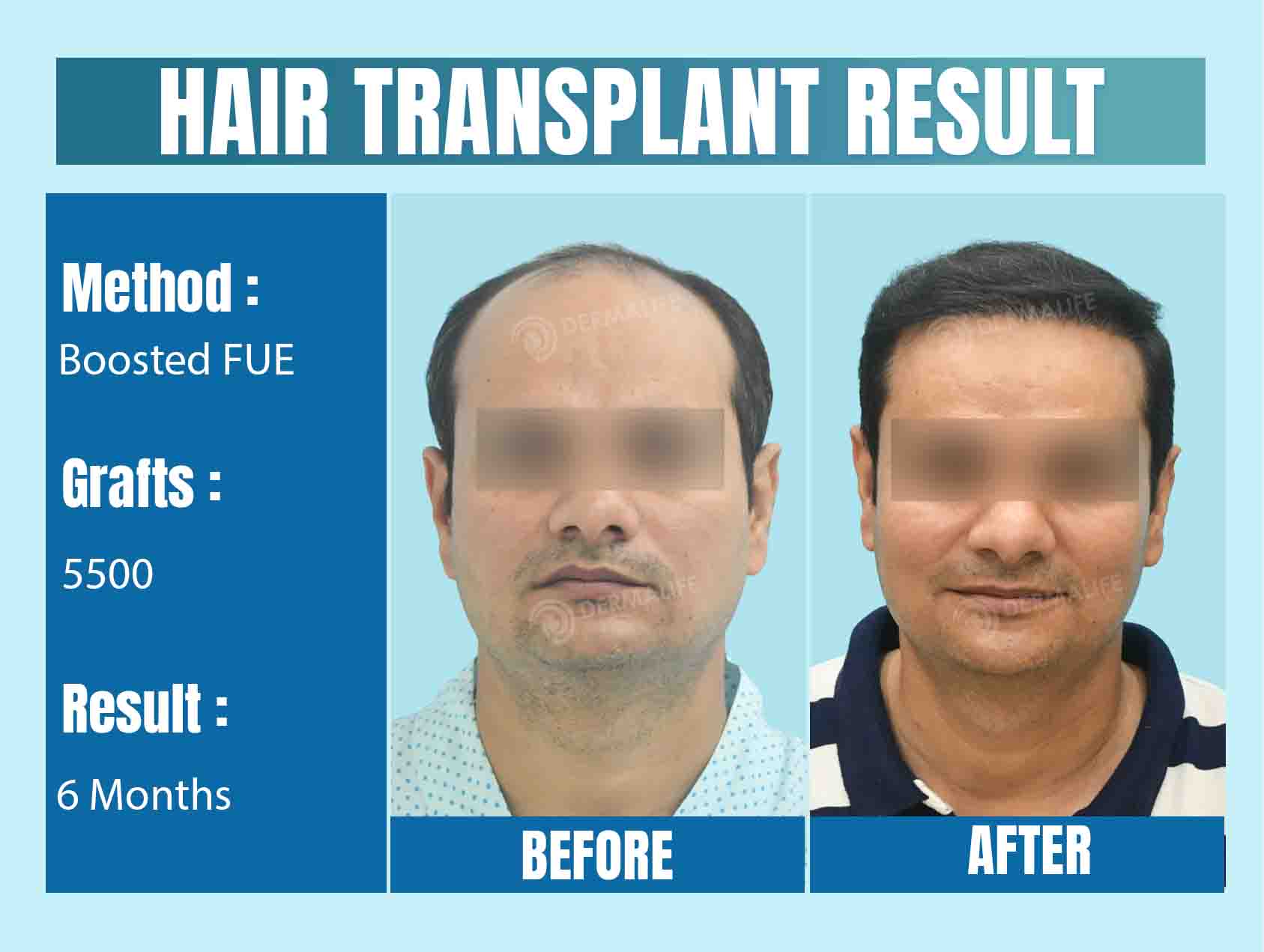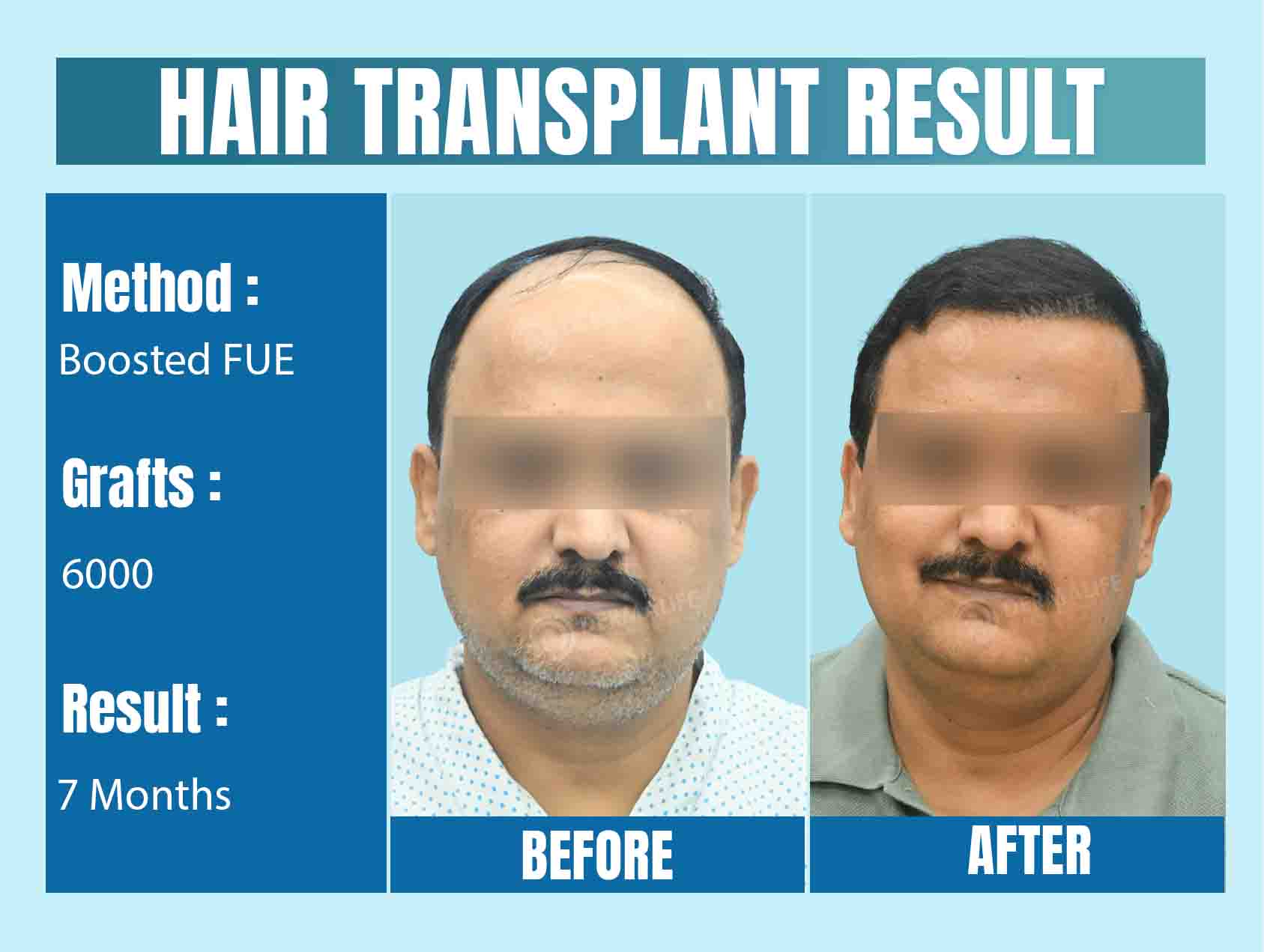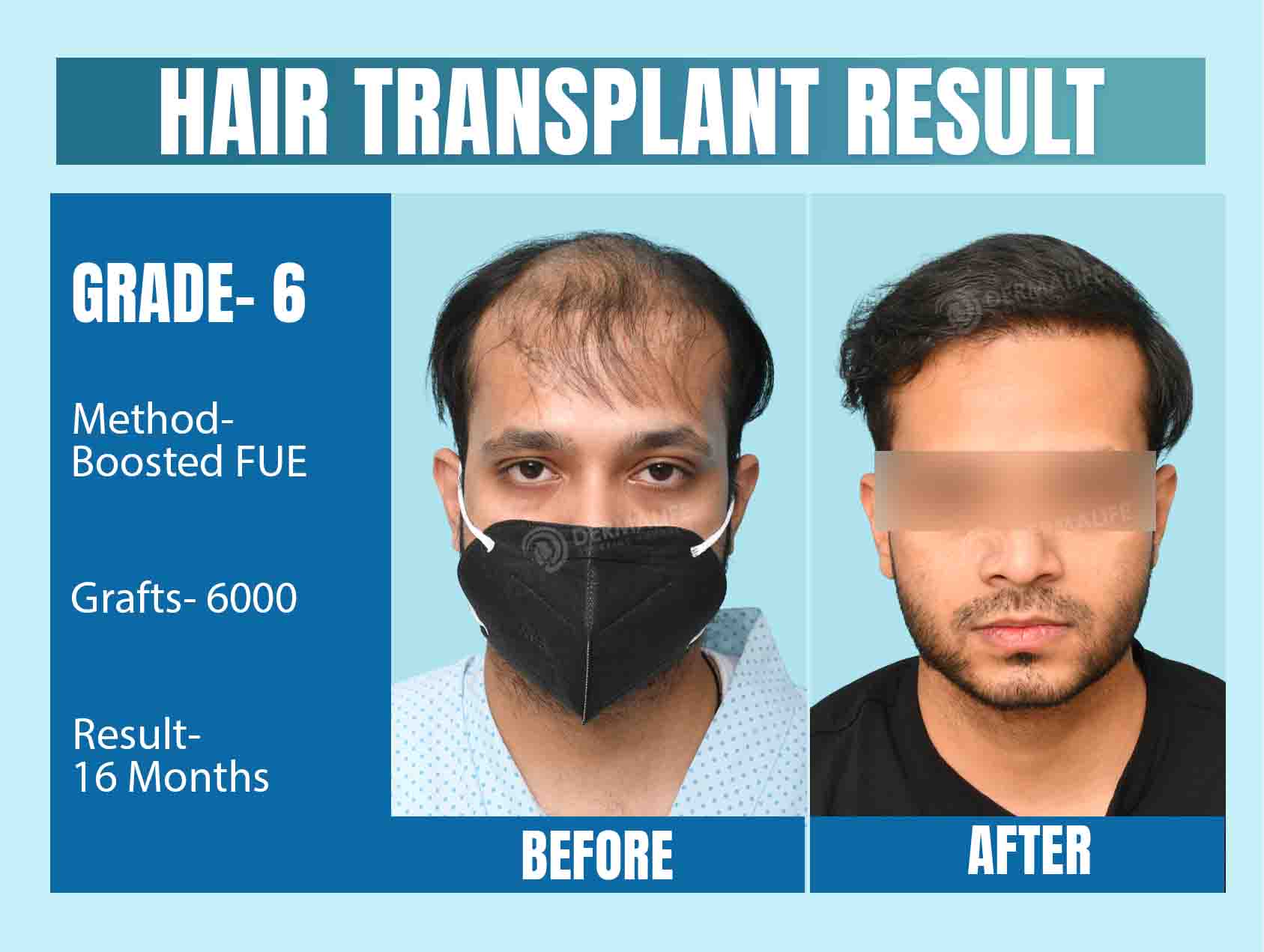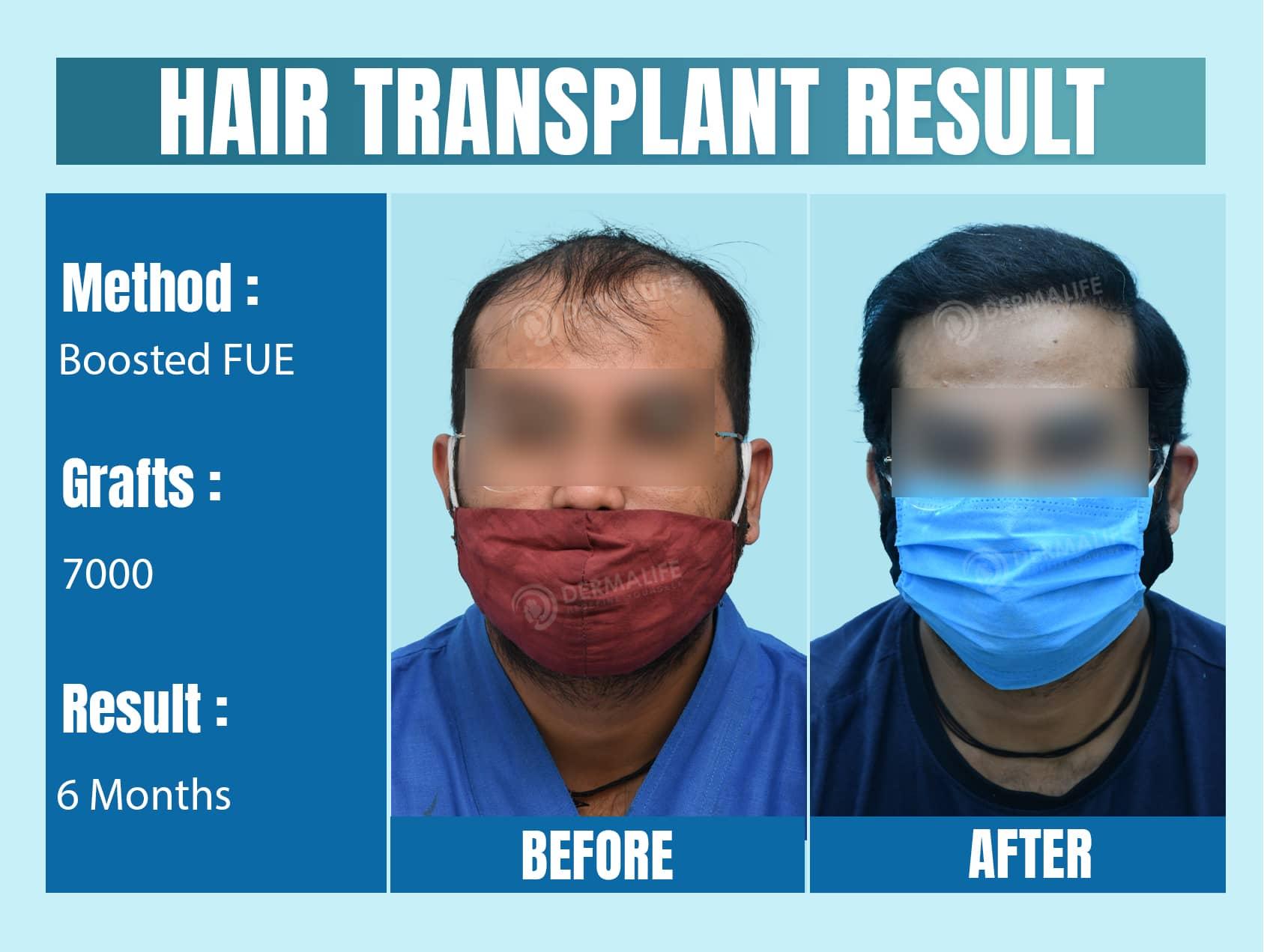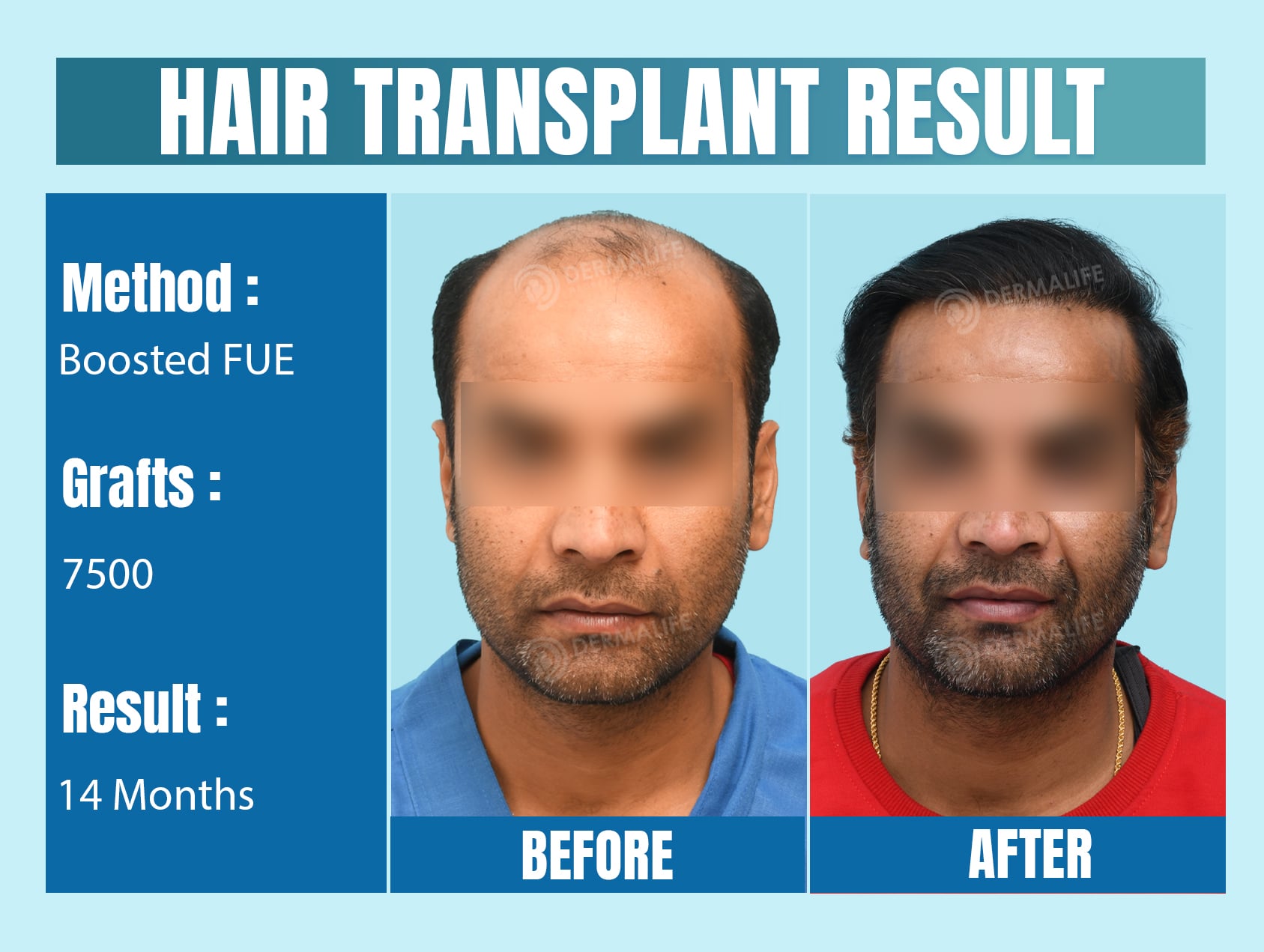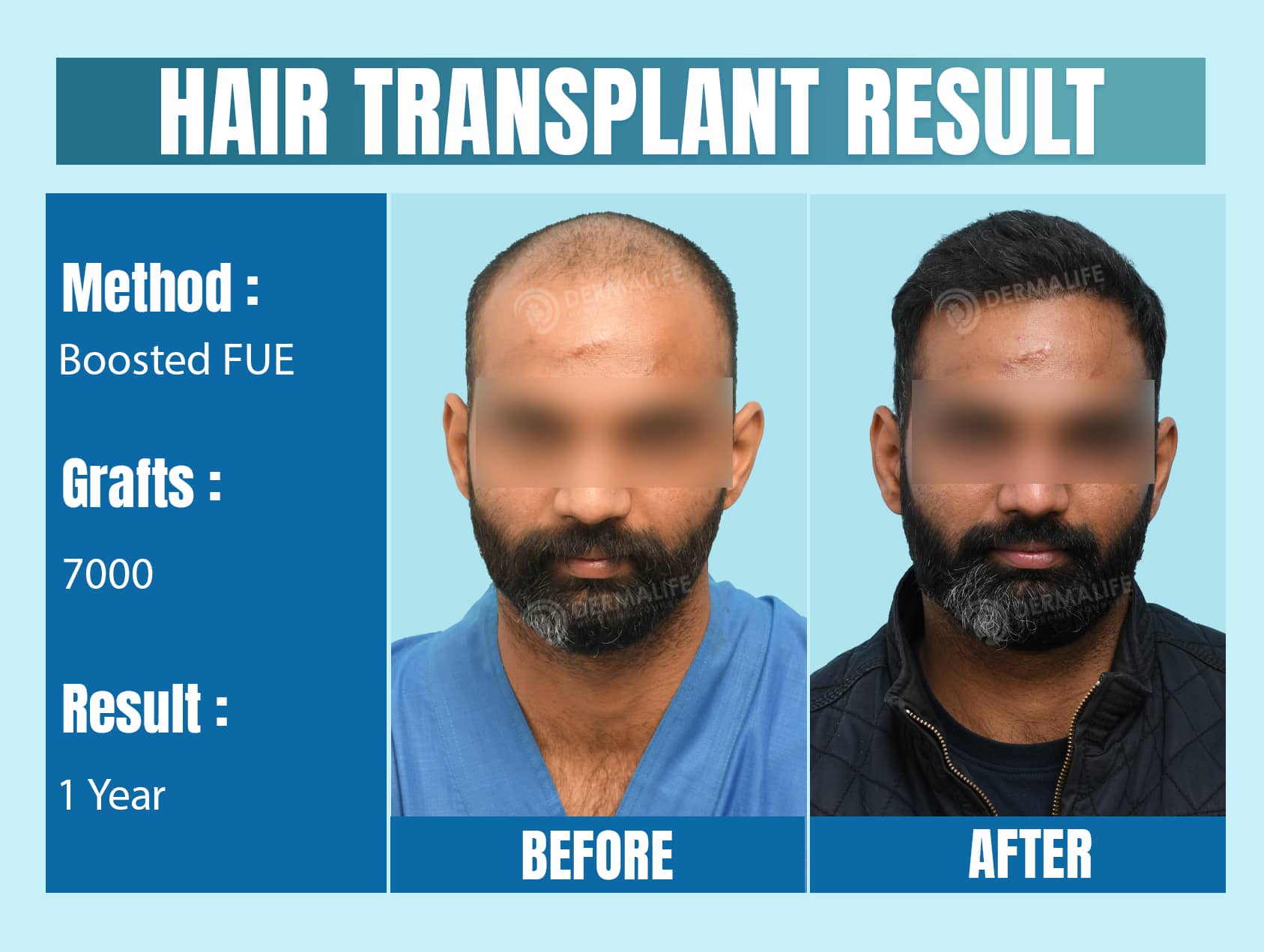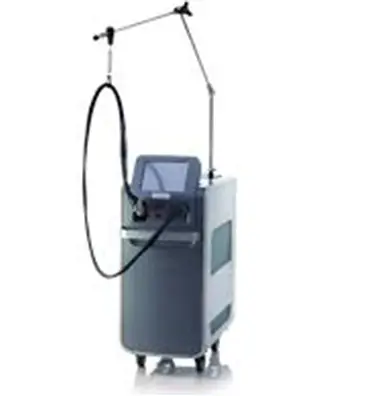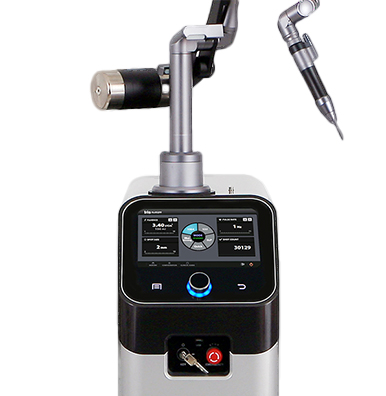Celebrity-Trusted, Patient-Loved –Discover Their Journey
Hello Everyone, this is Saanand Verma. Your very own Saxena Ji from Bhabhi Ji Ghar Par Hain. As a celebrity, I used to feel very conscious about my looks, as I was balding in a few areas. Due to balding, I had to use numerous products, like hair fibers, to give my hair a voluminous look. The whole hair styling before my shoot almost took 30 minutes, which was a matter of great concern for me. I was not so confident as far as my looks were concerned, and hence I used to feel shy to meet anyone because, as a celebrity, people look up to you. I had a failed hair transplant before, and hence I was skeptical about getting another one until I met Dr Gaurav Garg from Dermalife Hair and Skin Clinic in Delhi. One meeting with the great hair transplant surgeon, Dr Garg, changed my life for good. I had a boosted FUE Hair transplant from the clinic, and you can see the results after 6 months. The natural-looking results are a testament to how good Dr. Garg is at his art. My natural hairline and natural hair growth have restored my lost confidence. If you are also looking for such natural results, please get in touch with the best hair transplant clinic in Delhi today—Dermalife. — Saanand Verma (Saxena Ji – Bhabhi Ji Ghar Par Hain)
Book Your AppointmentHi, my name is Bhakhtyar Irani. I am a very famous television actor who was suffering from constant hair loss. A hair transplant was my only resort, as the alternatives were not working. In my case, to find the best hair transplant doctor and clinic, I came across Dr. Gaurav Garg from Dermalife, the best hair transplant clinic in Delhi. From my first consultation with Dr Garg, I knew I was in the right hands, and his expertise and personalized care made all the difference. Today, 12 months after my Boosted FUE hair transplant, I am here for my routine checkup. You can check my before and after photos in the video to see the dramatic change in my hair growth and my natural hairline. My hair makes me feel more confident than ever. Dermalife is truly the top hair transplant clinic in Delhi. If you are looking for a hair transplant or repair hair transplant in Delhi, I highly recommend Dermalife. The advanced techniques and professionalism make them stand out from the rest of the industry. If you, too, are struggling with hair loss, check out my progress after my hair transplant. Take it from me: trust Dr Gaurav Garg and his team, and you won't be disappointed.
Book Your AppointmentHello, everyone. I am Shaji Chaudhary, your very own Maqbool from the popular Prime Video series Mirzapur. Today, one month has passed since my hair transplant from Dr. Gaurav Garg at Dermalife Hair and Skin Clinic. I am back at the clinic to solve some of my queries post-hair transplant. I was feeling numbness and itching in my transplanted area, but Dr. Guarav Garg established that the problem I was facing was completely normal. When new roots get into the scalp, it takes time for them to gain nerve and blood supply. Nerve supply, comparatively, takes longer, almost 1 to 3 months, hence the feeling of numbness. As far as itching is concerned, it is also perfectly normal because it happens due to seasonal changes. My hair growth is the result of an unshaven FUE hair transplant. You can see my donor area. It does not look like I had a hair transplant. You can see my fabulous results post 7 to 8 months of hair transplant. I was very nervous and anxious before my hair transplant, but Dr Garg and his team have made sure that I receive the best treatment using the most advanced technology. I thank Dermalife for changing my life for good. It is indeed the best hair transplant clinic in Delhi.
Book Your AppointmentHello, everyone. This is Salim Zaidi, aka Tillu, from the very famous serial Bhabhi Ji Ghar Par Hain. I was dealing with constant hair loss, and that is when I met Saxena Ji, aka Saanand Verma, on the sets. I had known that he was dealing with hair loss, too, but I was taken aback seeing the results of his hair transplant. He had such natural and voluminous hair in just six months. On his advice, I visited Dr. Garg to solve my hair loss problem, too. As you can see, my hair transplant has taken place, and now I am waiting for the results, but I am positive that I will get the best results. Dr. Gaurav Garg is an excellent doctor and an excellent person. His team is also highly trained and understanding. The entire procedure was very painless. I did not feel that I had major surgery. I must say that Dr. Garg’s hands are extremely artistic, and he knows how to carry out a successful procedure. Now that my hair transplant is done, I am waiting for the results. Keep watching this space to know what the results of my hair transplant are!!!
Book Your AppointmentHello everyone. I am PR Sreejesh, an Indian Hockey player and now the coach of the junior hockey team. I was suffering from very bad androgenetic alopecia, and now, since I am the coach, I will be in the limelight more than ever. I needed a solution to improve my appearance. After consulting many doctors, I finally met a hair transplant specialist in Delhi: Dr Gaurav Garg. Meeting Dr Gaurav Garg was the turning point of my life, and I discussed all my hair problems with him. Hair transplant was my last resort, and I decided to trust Dr. Gaurav Garg. My hair transplant journey at Dermalife was extremely smooth. I was taken care of properly before and after the transplant, and Dr. Garg and his team meticulously performed the procedure. During the entire process, I felt very comfortable with Dr Garg, and it is now 5 months post hair transplant. My donor area and recipient area are healing well. My 40 % hair has grown back, and I am confident that I will see better results in the future. If anyone is dealing with significant hair loss, I highly recommend consulting Dr Gaurav Garg. I vouch for the results.
Book Your Appointment

